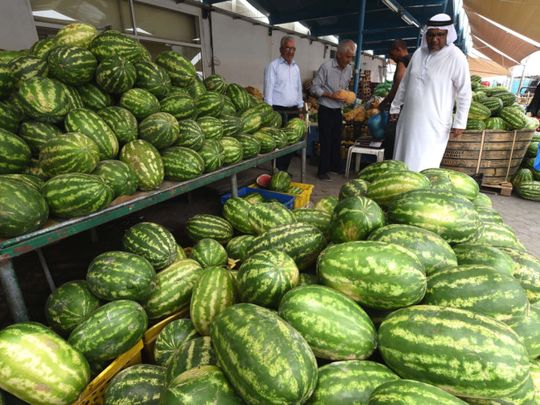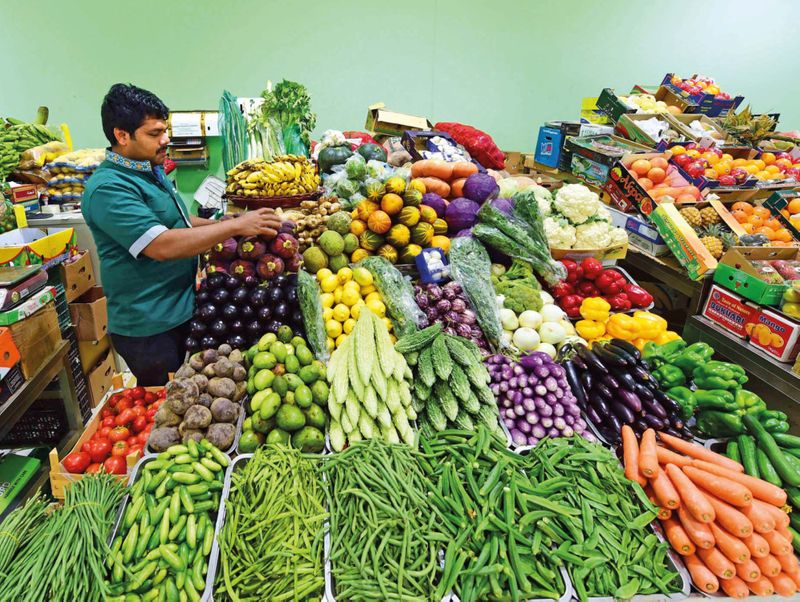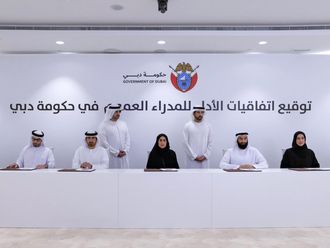
Dubai: Members of the Federal national Council on Tuesday passed a draft law to regulate the nation’s strategic food reserve.
The draft law empowers the Ministry of Economy to propose policies, plans and programmes related to the strategic stockpile of food commodities, coordinate with the supplying countries, and set plans and programmes for the size and quantity Safety stocks in the event of an increase in the demand for food commodities at the country level.
UAE’s food imports currently stand at 90 per cent.
Last year, the UAE launched its first-ever Food Basket which has identified 18 different food items, whose large-scale local production in some cases is set to make prices more competitive. Not just that, many items will have an all-new ‘Emirates Sustainable Agriculture Label’, which means they are ‘Agriculture-tech’ or ‘Ag-Tech’ products complying to standards of sustainable production, water efficiency, without chemicals and in line with innovative technologies. Basically they will be “clean and traceable foods.”

The UAE plans a domestic production target of over 100,000 tons by 2021 in line with the National Food Security Strategy 2051 announced in November last year.
According to the draft law, the suppliers and the registered traders are obliged to maintain the safety stockpile of foods, supply the strategic stockpile of food commodities upon request, electronic linking with the competent authority to ensure continuous monitoring of the quantities, varieties and status of the strategic stockpile, implement the decisions issued by the competent authorities, and distribute Strategic commodity stock in the event of an emergency, crisis or disaster.
Offenders of the law may face jail time and a fine of up to Dh5 million .
The UAE, which ranks 31 in the Global Food Security Index, aims to make it within the top 10 by 2021 and to the first place by 2051. To be able to do that, the country needs to diversify, with some food grown at home, some food grown by our companies abroad and some imported from different sources.”
The House members say with land and water being scarce in the UAE, local companies can invest abroad to boost supplies. Recent investments have been made in Romania, Egypt, Sudan, Serbia, and Cambodia. Lately, Uganda has also allocated 2,500 hectares of land as an agricultural free zone dedicated to the UAE. The government’s role is to facilitate agribusiness to increase food trade of quality products.
Members of the House said UAE’s food security stems mainly from its economic and political stability. They affirmed the UAE has the buying power but the nation needs to be prepared for what lies in the future concerning the global food systems.
The members argued the country should work on the opportunities of becoming a world leading hub in innovation-driven food security by enhancing facilitation for agribusiness and increasing R&D and place more emphasis on sustainable and efficient ways of food production.
The Office of Food Security has introduced 10 strategic initiatives as part of a new economic sector to encourage the adoption of new technologies in the agricultural sector.
So a joint programme between the Future Food Security Office and the Government Accelerators was undertaken.












